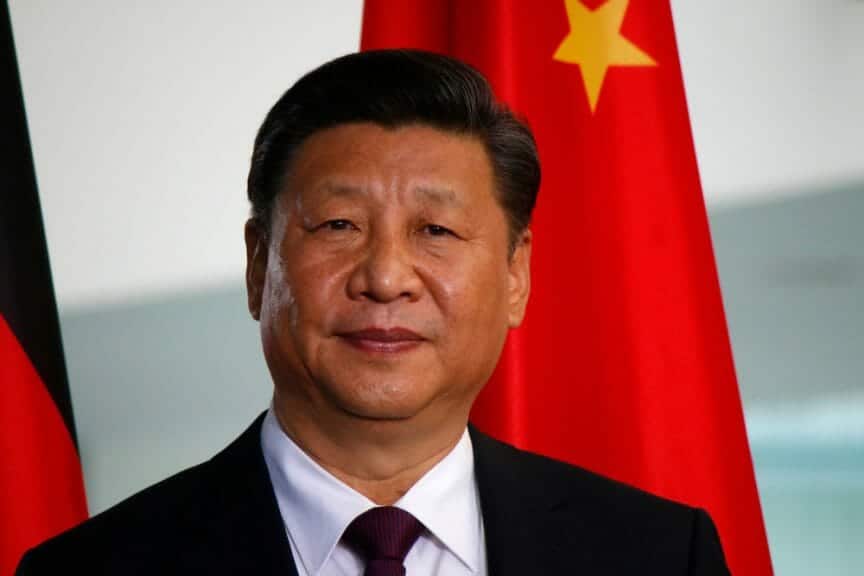China has responded to U.S. President Joe Biden‘s recent remarks referring to President Xi Jinping as a “dictator.” The Chinese government called the comments absurd and provocative, leading to an unexpected disagreement between the two countries following recent efforts to ease tensions.
Biden made the comments shortly after U.S. Secretary of State Antony Blinken’s visit to Beijing aimed at stabilizing relations. Attending a fundraiser in California, Biden mentioned a suspected Chinese spy balloon that had strayed into U.S. airspace earlier this year. He suggested that Xi was embarrassed by the incident, highlighting how dictators dislike being unaware of such events.
Xi Jinping became China’s most powerful leader since Mao Zedong, securing a third term as president and head of the Communist Party. China’s one-party system, which lacks an independent judiciary, free media, and universal suffrage, has been criticized by human rights groups and Western leaders as a dictatorship.
The Chinese Foreign Ministry labeled Biden’s remarks as extremely absurd and irresponsible. The ministry’s spokesperson expressed strong dissatisfaction, stating that Biden’s comments violated facts, diplomatic protocol, and China’s political dignity.
Analysts and experts believe that Biden’s remarks may not undo the progress achieved by Blinken’s visit. They downplayed the potential damage to the U.S.-China relationship, suggesting that both countries would likely seek to avoid escalating the situation.
Biden has previously referred to China as essentially a dictatorship and a place for autocrats. However, his recent comments were seen as more direct in their assessment of Xi Jinping.
Blinken and Xi agreed to work on stabilizing the rivalry between their countries during their meeting, aiming to prevent it from escalating into conflict. While no major breakthroughs were made, both sides agreed to continue diplomatic engagement, with more visits by U.S. officials planned in the future.
Biden later mentioned that U.S. climate envoy John Kerry might visit China soon. Despite the disagreement between the U.S. and China, other world leaders appeared reluctant to intervene, with the German government only acknowledging Biden’s statement.
The response to Biden’s comments from various analysts and officials indicates a nuanced perspective on the potential impact of the disagreement. Wu Xinbo, the director of the Center for American Studies at Fudan University in Shanghai, referred to Biden’s remarks as a product of his “big mouth,” but suggested that they might not undermine the progress made during Blinken’s visit.
Yun Sun, the head of the China program at the Stimson Center, also downplayed the potential damage, stating that Washington likely aims to let the issue subside quietly. Sun emphasized that the Chinese government would likely avoid blowing the situation out of proportion, as it could jeopardize the prospects of a bilateral summit between Xi and Biden scheduled for November.
Biden’s characterization of global politics as a battle between democracy and autocracy has been a consistent theme of his presidency. He has advocated for democratically-led countries to establish economic ties as a counterbalance to autocratic-led nations, specifically referring to Russia and China. However, this definition has previously been met with resistance from Beijing, with Xi asserting the presence of “Chinese-style democracy” during a meeting with Biden in 2022.
While no major breakthroughs occurred during Blinken’s visit, both the U.S. and China agreed to continue diplomatic engagement and expressed a commitment to stabilizing their rivalry. Biden also mentioned that John Kerry, the U.S. climate envoy, might soon visit China, indicating ongoing efforts to cooperate on shared challenges such as climate change.
The response from the Kremlin in Moscow reflected a degree of confusion, with spokesperson Dmitry Peskov highlighting the contradictory nature of Biden’s comments in contrast to Blinken’s efforts to ease tensions. Peskov emphasized that Russia maintains its own troubled relations with the United States while maintaining positive ties with China.
Overall, the international response to the disagreement between Biden and Xi varied, with some analysts downplaying its impact, while others highlighted the contradictory nature of U.S. foreign policy. The coming months will be crucial in determining whether the incident has lasting repercussions on the U.S.-China relationship or if both sides can navigate the disagreement and maintain diplomatic engagement.














